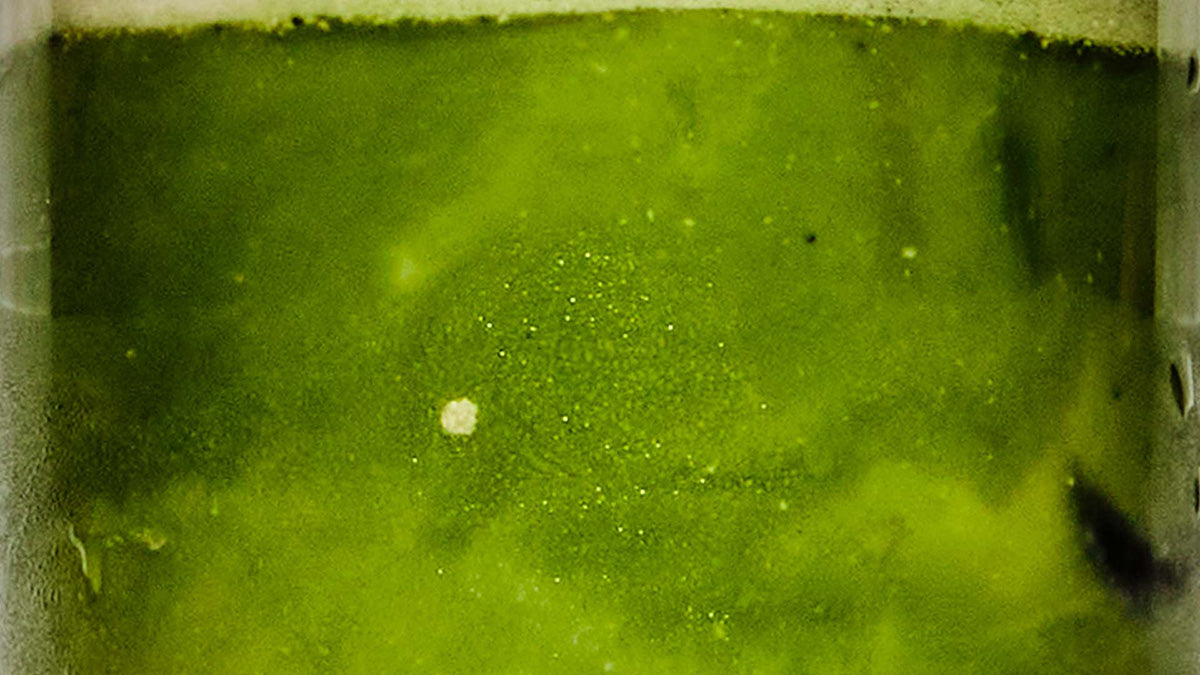
Beyond its striking, rich green appearance and appealing taste, the health benefits of matcha are what set this powerful tea apart. From traditional farming methods to its chemical compounds, learn the background of how matcha supports your mind and body.
Shading: The Tradition and Its Benefits
Matcha refers to the powder form of dried and ground tencha leaves—a varietal of green tea. Tencha destined to become matcha is farmed using specific, traditional methods. During the final stage of growth, the tea leaves are shaded. This slows growth, and, in the process, affects both the flavor of the tea and its health benefits. The shading process heightens levels of chlorophyll, amino acids (including L-theanine), and caffeine. Of our Matchaful line, the most rich in all three of these is our ceremonial grade offerings: Kiwami, Hikari, and Satori. Ceremonial matcha is shaded for the longest amount of time, thereby increasing the amount of chlorophyll, amino acids, and caffeine present. This is why you get more of a brain boost when consuming ceremonial grade matcha in comparison to a culinary grade.
Green, Greener Chlorophyll
While shaded, the tea plant is forced to concentrate chlorophyll in its leaves to capture the diminished amount of light. This is what gives matcha its vibrant green hue; the greener the matcha, the higher its chlorophyll content. Outside of color, chlorophyll presents an array of health benefits. The fat-soluble plant compound is known to stimulate the immune system and support the body’s detox systems by helping resolve body odor and gastrointestinal issues. Chlorophyll also forms tight molecular bonds to neutralize chemicals that can cause oxidative damage and disease. Our matcha has 5 times the chlorophyll of green tea, helping clear skin, protect the blood and heart, and prevent joint inflammation.

L-theanine
Matcha is one of the very few natural sources of the amino acid L-theanine, which serves multiple critical roles. Contributing to the taste profile, L-theanine is thought to be the source of umami flavor in green tea. From a health perspective, L-theanine is responsible for effects on brain function. Studies show that the compound boosts calming brain chemicals such as GABA, serotonin, and dopamine, which are associated with mood improvement, concentration, lower blood pressure, sleep, and energy. L-theanine also promotes the release of alpha brain waves, which are responsible for a feeling of wakeful relaxation. These chemical processes in the brain lead to an overall reduction of stress and anxiety while promoting attention and focus. In matcha, L-theanine works in synergy with caffeine to increase attentiveness while supplanting the jitter and crash aspects with a relaxing effect instead. Our Organic Satori Ceremonial Matcha contains 16mg of L-theanine, double the amount of our culinary grade.

Antioxidants with a Highlight on EGCG
Green tea contains exceptional levels of antioxidants. When we consume matcha, we ingest the whole ground tea leaf—thereby intaking all the antioxidants available in green tea. Antioxidants protect our cells from free radicals, molecules that damage cells when exposed to things like pollution, radiation, or tobacco smoke.
Matcha’s antioxidants are primarily potent catechin polyphenols. Our matcha is especially high in Epigallocatechin Gallate (EGCG), the most abundant and robust catechin in matcha. Our Kiwami Super Ceremonial and Hikari Ceremonial Matcha contain 136mg and 123mg of EGCG per cup respectively—in comparison, antioxidant-rich blackberries contain only 11mg of EGCG per cup. Interest in this specific polyphenol is partially due to its documented cancer chemopreventive effect in lab settings. Another focus of research is the potential contribution of EGCG to healthy brain aging and the prevention of neurodegenerative diseases such as Alzheimer's and Parkinson’s. Catechins can also prevent heart disease and lower cholesterol.
Matchaful sources pesticide-free, sustainably grown matcha of the highest quality. This quality control guarantees potent levels of the health benefits described above. In addition, our matcha undergoes extensive third-party testing for radiation, heavy metals, and over 700 pesticides and herbicides to ensure it meets Matchaful standards. These practices trace back to our original mission—to take care: of our bodies, each other, and the planet.
